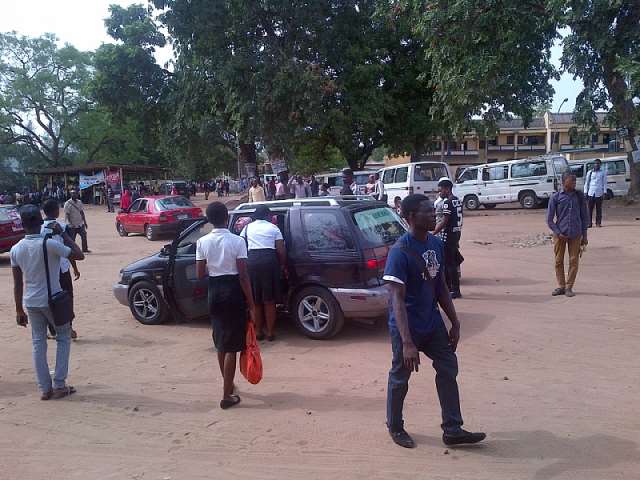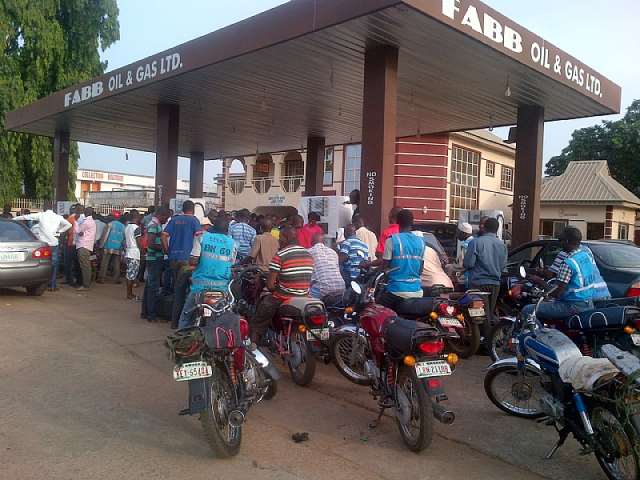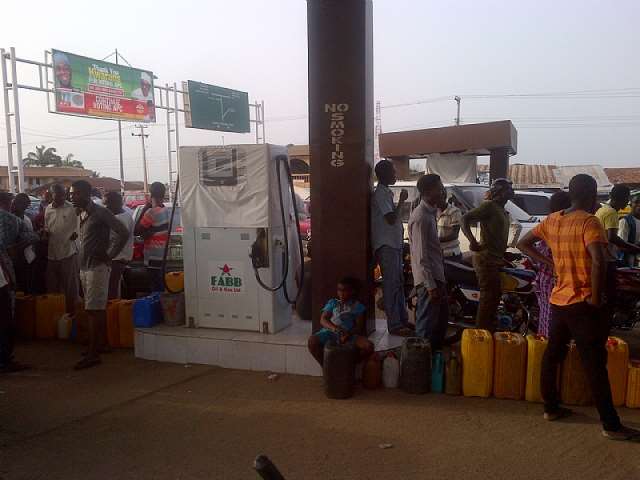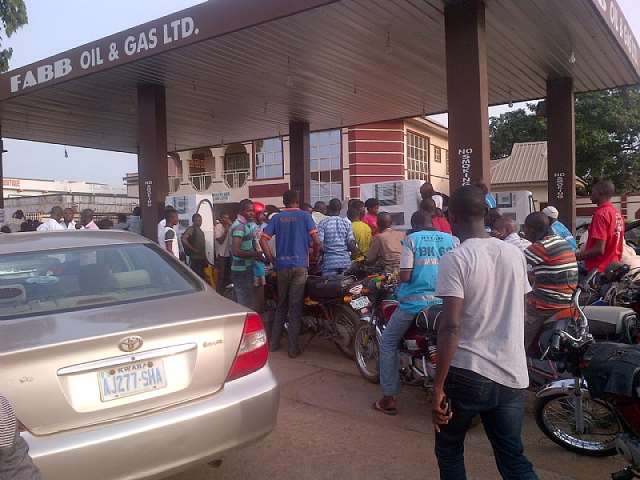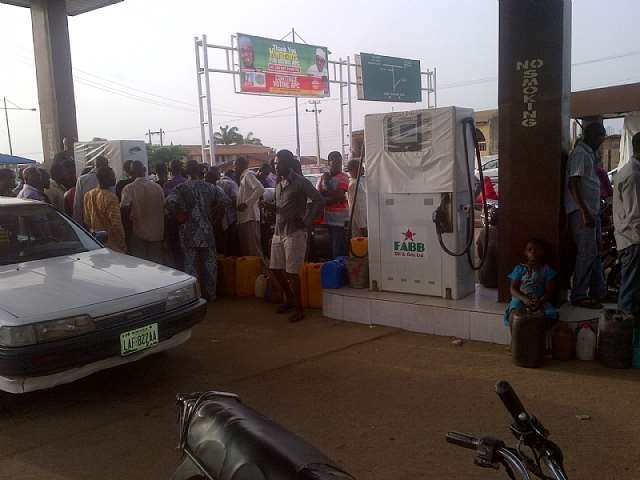Ill fate of the Nigerian students
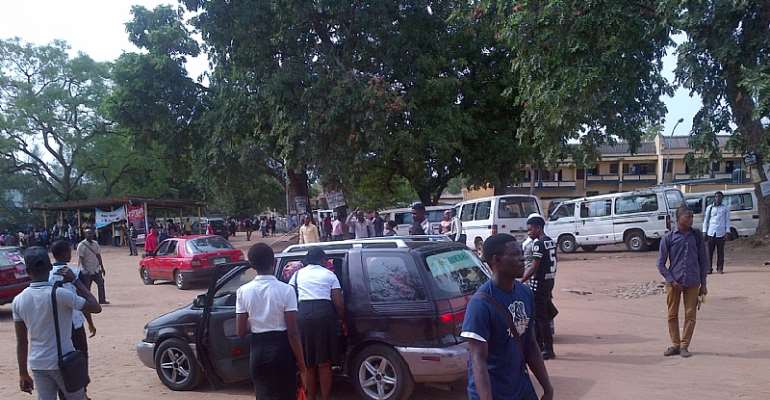
It is conventionally true that, wherever two elephant engages in a brawl, the grass suffers the brunt of it all. This is true of the state of affairs of the nation today as the industrial action embarked upon by the independent oil marketers of Nigeria has spread swiftly to other part of the nations sector, particularly academic environments were the students are the most affected.
The heartache caused by this upheaval condition has increased the fears and hardship of an average Nigeria students nationwide. Subsequently, this has led to disruption in academic activities in the state owned and federally institutions in the country. Odeyemi Olawale; 300 level, History, University of Ilorin examined the plight of fellow Nigeria students.
In the first week of May begun the industrial action, like every other similar protest soon to be curtailed, it has since remained a nationwide affair; wearing a spartan look.
At the university of ilorin for instance, the ever busy campus which usually was a beehive of academic activities has lately recorded a low turnout of students to lectures. Even as the institution begin her end of the section examination in this month, most lecture rooms could barely attract a considerable number of students owing to the hike in transportation cost and the low turnout of campus shuttles to convey them to the university campus. A visit to most of the lecture classes, walkways, stadium among other students relaxation spots on campus depict a ghost town.
When campuslife visited the university bus terminus along the university road, a commercial driver who identified himself as Sanni; equate the situation to 'man inhumanity to fellow man'. He bewailed that; most petroleum stations in Ilorin started hoarding the product even before the scarcity became a national issue. In his words, "I spent over five thousand naira to purchase a 30 litres of fuel just this morning, the cue was so long that I have to pay my way to get this fuel early enough."
Another driver at the university motor park who does not want his name in print described the sirtuation as 'battle of the fittest where only the strong comes out victorious'. He lamented that, most petroleum stations where abruptly closed, refusing to sell nor entertain any form of cues around it station, while others who sold their product, sell for exorbitant prices, between 140 Nigerian naira to 250 naira. "This issue has since reached it peak with no obvious action to curtail it," he said.
Meanwhile, along the university road, students were seen stranded as they could hardly find vehicles to convey them to the campus. The university owned transit buses have to travel more rounds in and out of the campus. Sanni Sekinat, an 100 level Biochemistry students of the university, nursed fear that the situation might remain unresolved if not checked into once and for all. In her words; "the suffering is becoming more unbearable for students especially those of us living in town who have early morning classes to catch up with. Now, I have to wake up as early as 5a.m in the morning so as to meet the early morning bus. This is quite stressful to me."
Another student, Rose Adeleke, 300 level French, Unilorin said, "such is the fate of poor Nigeria students; we are the most affected. How else can one explain a situation were, you have to pay double the price of what it used to be." To Rose, the scarcity is the reason behind the epileptic power supply within and around the university community worsening students preparation towards the fast approaching examinations. "The government will do us much good if they can meet the demands of oil marketers so that the campus can return back to life", she stressed.
Similarly, at the University of Lagos (Unilag), the situation remained the same as students have to stay longer hours on campus before getting vehicles to transport them home. Oyewole Omotayo, final year student, Estate Management, Unilag fused strongly at the situation. He noted that; "Despite the recent subsidy payments made to Oil Marketers Association of Nigeria by the Federal Government in order to quash the lingering fuel scarcity in the country, the issue is yet to be resolved which is a slap to national democracy."
Meanwhile, another student; Olaniyan Muhibah, 200 level Medicine and Surgery, Unilag, has appealed to the waring parties to embrace peace and settle their differences amicably in a way that would bring sanity to the fast depleting situation. In her words; "such exorbitant fee beeing charged by motorists since the inception of the industrial action betrayed the very essence of human sensibility; which is fairness, justice and equality."
"What we're being charged is far too outrageous and ridiculous. I therefore appeal on behalf of all Nigerian students to the federal government to respond promptly to the call of the people in a bid to further salvage the situation from causing a total breakdown of law and order."
Also in Abuja, the nations capital unit, the situation has gotten to a halt were major roads leading to the central part of the capital wore a tight look with the heavy traffic as vehicles were packed on both sides of the road in a bid to obtain the scarce product. Peterside Anyanwu, 300 level Law, University of Abuja in this interview with campuslife stated that the current scarcity has not come to him as a big surprise owing to the mantle of leadership soon to change hands. He noted that; "The tension is there and the stake is high, but hopefully at the end of the May 29th handing over date, the situation should wear a brighter look."
Meanwhile, rumor making rounds, suggested that the strike may have to extend beyond the May 29th handing over to president elect, General Muhammadu Buhari giving to the prolonged industrial action and if the government refuses to meet the demands of the marketers. The Oil Marketers were said to have accused the government of being partial by only paying the major oil marketers. Hence, they too have locked up their tank farms against tanker drivers. So, they have stopped loading the product because the Federal Government overlooked them in the recent payment of subsidy arrears.
Report- Odeyemi Olawale, 300 Level History, University of Ilorin.
